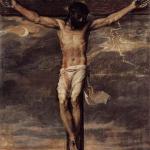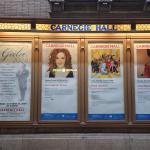 What is liberal theology? When did it start? Who are its major thinkers? Let’s remind ourselves once more how Christopher Evans, in his Liberalism without Illusions, defines it:
What is liberal theology? When did it start? Who are its major thinkers? Let’s remind ourselves once more how Christopher Evans, in his Liberalism without Illusions, defines it:
Theological liberalism is a historical movement born in the nineteenth century that supports critical intellectual engagement with both Christian traditions and contemporary intellectual resources. As opposed to more traditional forms of Christian theology, liberalism has been characterized by an affirmation of personal and collective experience, systemic social analysis, and open theological inquiry (6).
Notice what’s at work here: a creative synthesis of the Christian tradition (evangelical) and modernism. The result focuses on both personal and collective experience, a clear emphasis on systemics, and a general disposition of opennness. In chps 2 and 3 Evans sketches the dominating voices of liberalism, and it is a sketch to which I will at times turn again.
Human reason matters, and here he dips into both Kant and Hegel, and he rightly (I think) sees the impact of Hegel on liberalism because of his more immanent approach to divine activity in history. God can be known through reason and in historical processes, and this all leads him to speak of the undeniable significance of Schleiermacher for understanding liberalism. Now briefly:
1. American liberalism emerged out of New England Calvinism.
2. A leading influence can be seen in Charles Sheldon’s famous “What would Jesus do?” question and life. Christology was refashioned in exemplary terms and also in anti-Trinitarian ways with Unitarians (William Ellery Channing’s voice). Then comes Horace Bushnell and “new theology.” He saw Christianity as a historical religion and was one who helped create a more positive sense of human goodness (Christian nurture flowed from this) and he pushed for a sacrifice of his life on the part of Jesus against typical penal substitutionary theories.
3. The pulpiteers included Henry Ward Beecher and David Swing (4th Pres Chicago), and it was Swing who perhaps best articulated emerging liberal theology: OT criticism was embraced, as was Darwinian thinking, and cultural conditionedness.
4. Kingdom theology, and this means socialistic Christianity, or the application of Jesus’ compassion and justice to national and global problems. Here he looks at Shailer Mathews.
5. All leading to his specialty: Walter Rauschenbusch and the social gospel and social Christianity. Salvation becomes more robust and the focus is on social problems with the church taking the initiative in justice issues. The social gospel gave important ideas to liberation theologies. He looks, too, at Washington Gladden and Howard Thurman. The social gospel is the most enduring legacy of Protestant liberalism and is in my view here to stay. It can tie hands with Kuyperian thinking to focus the energies of Christians on the public sector, on politics, and on social activism — though the two orientations (social gospel and Kuyperian thinking are hardly the same).
The arena of God’s work was history and society, Jesus’ moral vision and his humanity were central, and they tended to diminish theological centralities of orthodoxy as well as the church. This led in part to therapeutic emphases in the gospel as well as to pastoral care and prophetic theology. Social justice was combined with pastoral care for the folks in their local church (e.g., Ernest Fremont Tittle, from Evanston). It garnered interest in the ecumenical movement… but listen to this observation Evans summarizes from Sidney Mead: “the social gospel was a movement that did not lead to the creation of any new churches, and was largely consigned to the corridors of power within preexistent Protestant denominations” (76).
And it’s focus, even obsession, with economic concerns made it blind often to other concerns, like race and gender equalities.















